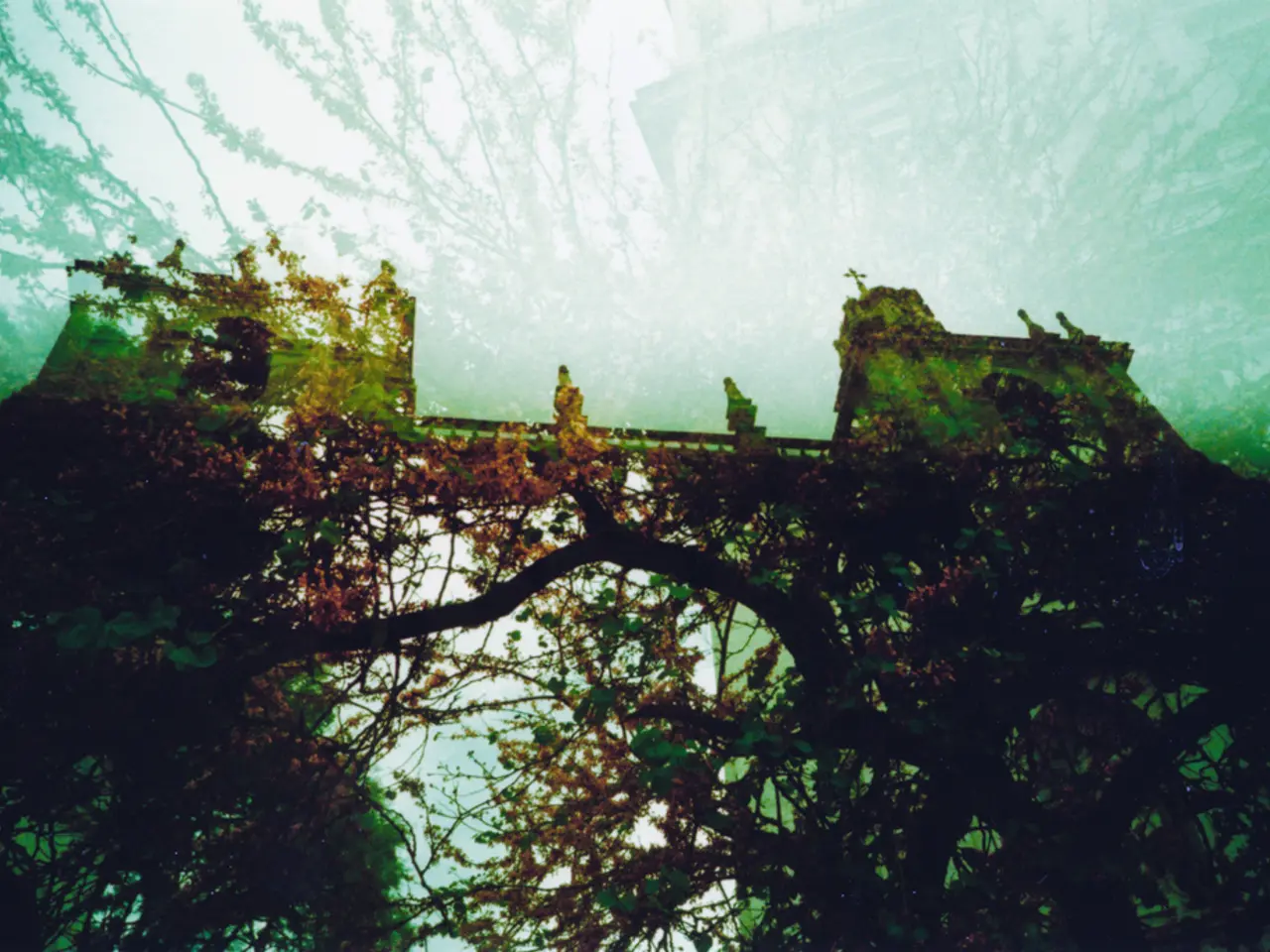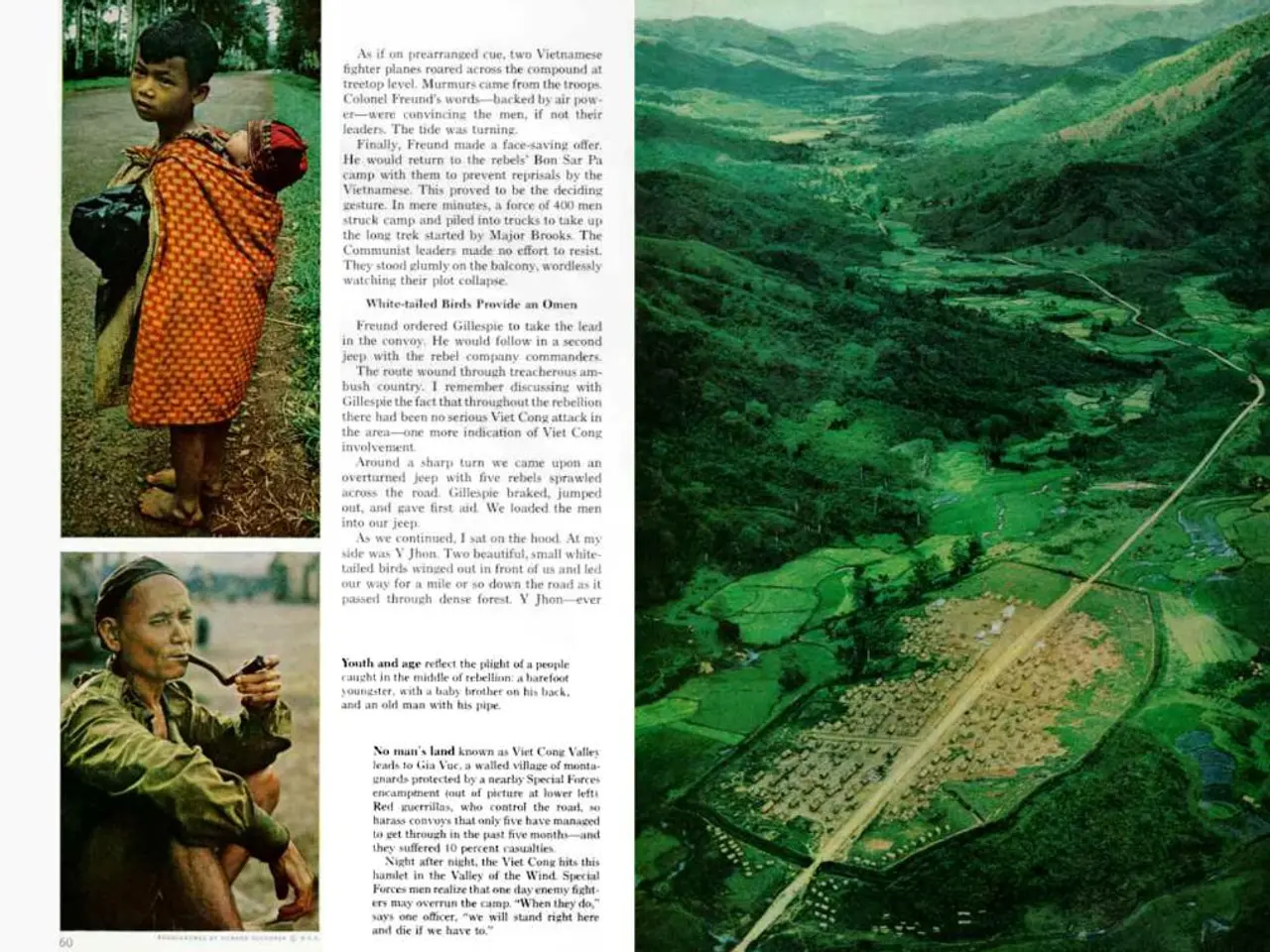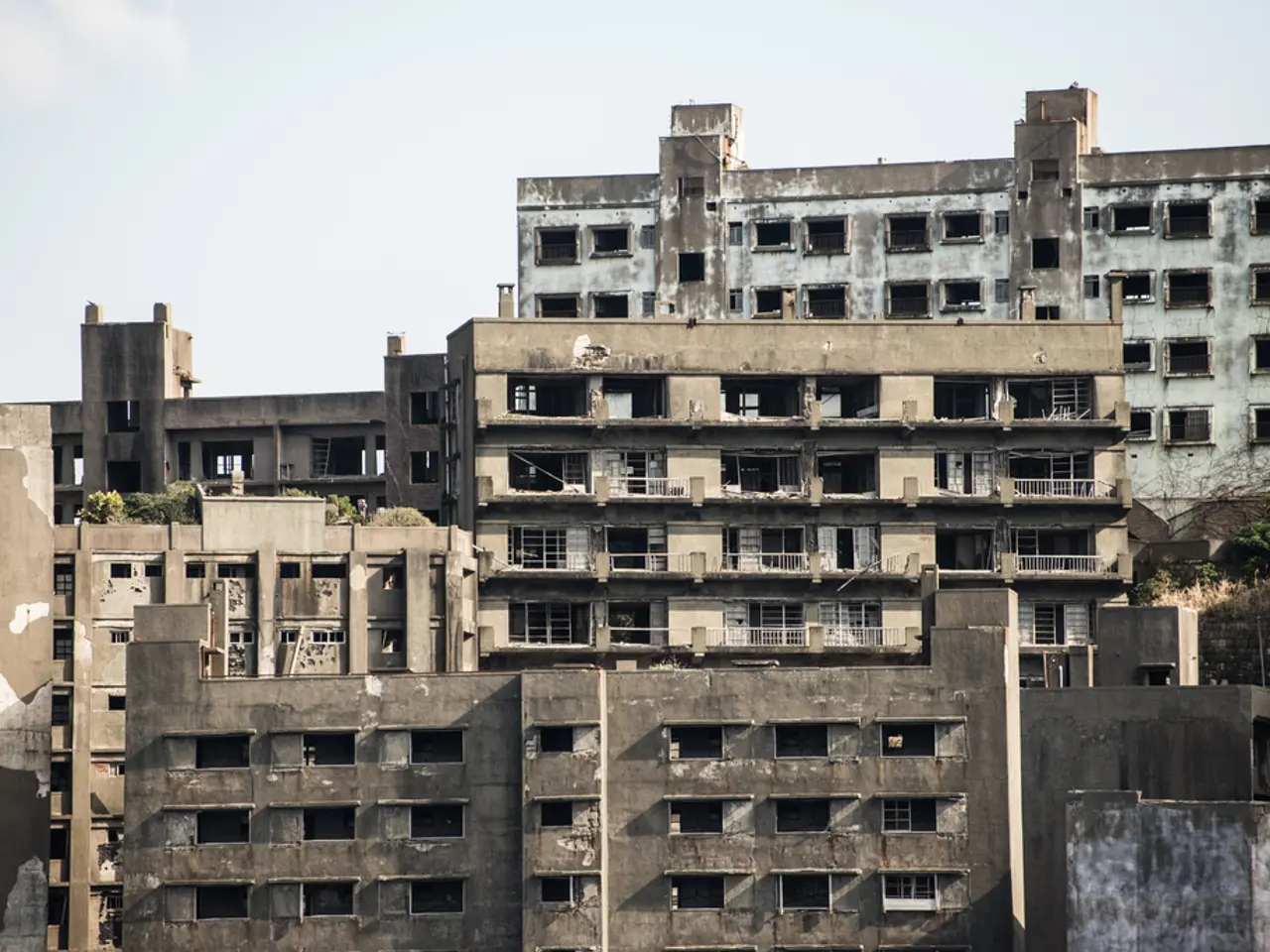Hidden Power Struggle: The Next Move for Iran's Supreme Leader from His Lair
Iran's supreme leader is strategizing his chosen candidate for succession, hidden away in a secure bunker.
In a rare public appearance, Ayatollah Ali Khamenei, the most powerful man in Iran for 36 years, briefly emerged from his secret hideout, claimed victory over Israel and the US. Behind the scenes, he's been meticulously plotting his succession for years.
Khamenei, the spiritual and political leader of the Islamic Republic, has had an impressive grip on the Shiite state for decades. He has the final say officially, nothing moves without his approval. Khamenei's reign started amidst the Shah's rule, serving six years in prison. Post the Islamic Revolution in 1979, he swiftly rose amongst the Mullahs and rose to become president in 1981. After the death of Ayatollah Ruhollah Khomeini in 1989, he took over as the supreme religious and political leader.
Israel's Defense Minister, Israel Katz, refers to Khamenei as the "modern Hitler." The Israeli military is well-aware that eliminating this man would be crucial for their strategies, Katz asserted last week. The ceasefire between Israel and Iran brokered by US President Donald Trump may delay this confrontation, but Israeli intelligence agency Mossad remains vigilant, likely monitoring Iran's most influential man. In recent weeks, Mossad has removed leading figures from the Iranian army and intelligence. Should they wish, they could potentially target Khamenei too.
Fearing assassination attempts and internal revolts, Khamenei has significantly intensified his security measures. He is said to be living in a bunker, cloistered at an unknown location, guarded by the Revolutionary Guard's special forces around the clock. Only a handful of trusted individuals have access to him, delivering messages and relaying his orders to the Revolutionary Guard and other key figures in Iran. Khamenei solely communicates offline, due to the fear of Mossad eavesdropping or tracking him[1].
Trump: A Soft Target for Khamenei
Trump asserts that the Americans are already aware of Khamenei's whereabouts.He labels Khamenei as "an easy target," the US president wrote on his online network, Truth Social last week. "But we won't eliminate him, at least not now." Despite this declaration and the military strike that hit Iran's nuclear facilities, the Iranian command chain remains operational[2]. High-ranking officials and top diplomats report no significant disagreements within the leadership. Vali Nasr, Iran expert and professor at Johns Hopkins University, remarks, "The top priority is preserving the state."
Forces from within the Revolutionary Guard could potentially "remove" Khamenei, claims political scientist Ali Vaez of the International Crisis Group. Khamenei's opponents within the Mullahs could decide that he has become "too old and too passive" and traitorously oust him, according to Vaez[3].
Plans for a Swift Succession
Khamenei is rumored to have made arrangements for his succession two years ago, appointing a three-man committee of high-ranking clerics to handle the matter. Traditionally, a lengthy selection process is mandated by the Expediency Council, an 88-member body of high-ranking Iranian clerics who choose the new leader. However, Khamenei, who has survived an assassination attempt and a cancer diagnosis, seems eager to expedite this process[4].
Prime Contenders for the Throne
- Mojtaba Khamenei: Khamenei's son, a mid-level cleric who has never held an official government post, is a leading contender. He is likely to continue his father's hardline policies. However, his inexperience and his lineage being detrimental to the Mullah regime's revolutionary legacy pose risks for naming him successor[2][4].
- Hassan Khomeini: The grandson of Ayatollah Ruhollah Khomeini, founder of the Islamic Republic, and reform-minded Hassan Khomeini is another candidate. He is highly respected among high-ranking clerics and the Revolutionary Guard, potentially making him a popular choice[4].
Vaez speculates that choosing a reformist candidate such as Hassan Khomeini might be a "clever move" to deter foreign attacks and internal revolts[4]. However, the constitution stipulates that each candidate must hold the rank of Ayatollah and adhere to Khamenei's revolutionary ideologies, which could open the door for a surprise candidate[4].
Sources:[1] New York Times[2] Reuters[3] Reuters[4] Enrichment Data
Tags:- Iran- Islamic Republic- Ayatollah Ali Khamenei- Mullah Regime- Iranian Politics- Succession- Supreme Leader Selection- Iran Nuclear Facilities- Israel- USA- Donald Trump- Mossad- Revolutionary Guard
The European Union, being committed to the implementation of the UN Charter, might consider the political implications of the ongoing power struggle within the Islamic Republic, given the strategic importance of Iran in general-news. As Ayatollah Ali Khamenei, the supreme leader of Iran, prepares for his succession, potential contenders like Mojtaba Khamenei and Hassan Khomeini, with their differing ideologies, could significantly alter the regional politics.






